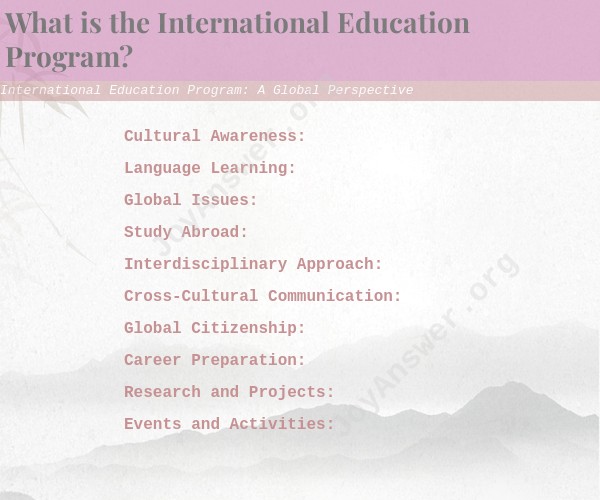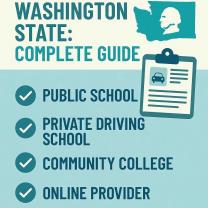What is the International Education Program?
An International Education Program refers to a comprehensive educational initiative or curriculum that focuses on providing students with a global perspective and a deeper understanding of international issues, cultures, and experiences. These programs are designed to promote international awareness, intercultural competence, and prepare students to engage with the global community effectively.
Key features of an International Education Program include:
Cultural Awareness: International Education Programs emphasize the importance of understanding and appreciating diverse cultures from around the world. This includes learning about customs, traditions, languages, and histories of different countries and regions.
Language Learning: Many programs encourage or require students to study foreign languages to facilitate communication and cultural understanding. Language skills are a crucial component of global competency.
Global Issues: The curriculum often includes the study of global challenges, such as climate change, human rights, global health, international politics, and economic globalization. Students learn about the interconnectedness of these issues.
Study Abroad: Many International Education Programs offer opportunities for students to study or travel abroad, allowing them to immerse themselves in foreign cultures and gain firsthand experiences.
Interdisciplinary Approach: These programs often draw from various academic disciplines, including international relations, political science, economics, anthropology, sociology, geography, and more. The interdisciplinary approach helps students gain a holistic understanding of global affairs.
Cross-Cultural Communication: Students develop skills in effective cross-cultural communication and learn to work collaboratively with individuals from different backgrounds.
Global Citizenship: International Education Programs aim to foster a sense of global citizenship, encouraging students to be responsible, ethical, and engaged members of the global community.
Career Preparation: Graduates of these programs are well-equipped for careers in international relations, diplomacy, global business, international development, non-governmental organizations (NGOs), education, and more.
Research and Projects: Students may engage in research projects, international internships, or service-learning experiences related to global issues.
Events and Activities: Many programs organize events, lectures, workshops, and cultural exchanges to promote international understanding within the school community.
International Education Programs can be found at various educational levels, including primary and secondary schools, colleges, and universities. They play a crucial role in preparing students for a rapidly globalizing world, where cross-cultural competence and an understanding of global issues are increasingly valuable and relevant.













